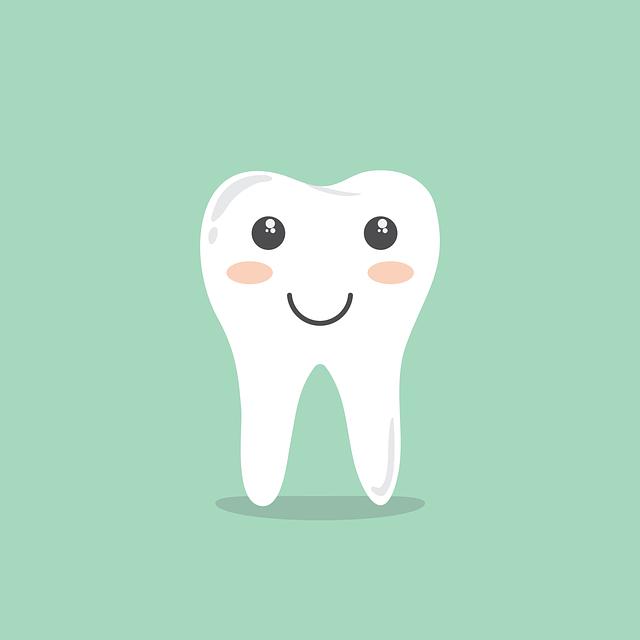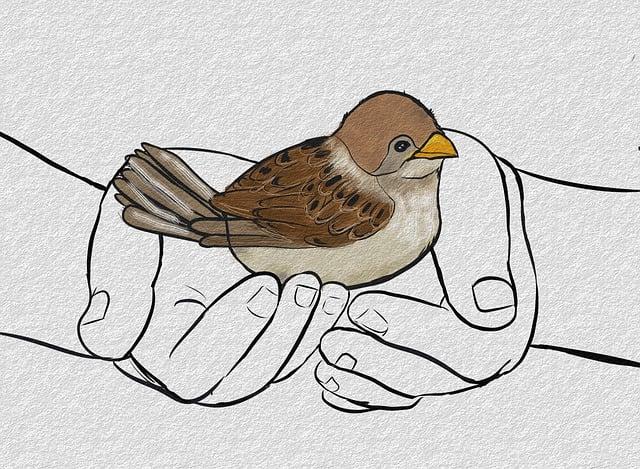Do you grind your teeth? Discover the real dangers of bruxism and learn how to protect your oral health starting today.
1. Understanding Bruxism: The Causes and Symptoms of Teeth Grinding
Bruxism, commonly known as teeth grinding, is a dental condition that affects numerous individuals worldwide. Understanding the causes and symptoms of this condition is crucial in order to seek appropriate treatment. Here, we provide you with comprehensive information on the subject.
Causes of Bruxism:
– Stress and Anxiety: Bruxism often occurs as a result of stress, anxiety, or tension. High-stress levels can activate the habit of teeth grinding during sleep or even while awake.
– Abnormal Bite Alignment: Malocclusion or misaligned teeth can contribute to bruxism. When the upper and lower teeth do not fit together properly, it can lead to involuntary grinding or clenching of the teeth.
– Medications and Substances: Certain medications, such as antidepressants, can increase the likelihood of bruxism. Additionally, the consumption of caffeine, tobacco, or alcohol may play a role in triggering teeth grinding.
Symptoms of Bruxism:
– Teeth Sensitivity: Individuals with bruxism may experience increased tooth sensitivity due to enamel erosion caused by grinding.
– Jaw Pain and Tension: Chronic clenching and grinding can lead to temporomandibular joint (TMJ) disorders, resulting in jaw pain, stiffness, or clicking sounds.
– Headaches: Frequent headaches, especially in the morning, are common symptoms of teeth grinding. The tension and stress on the jaw muscles during bruxism can cause headaches, mostly felt around the temples.
It is important to recognize the causes and symptoms of bruxism in order to take appropriate action. Seeking professional dental advice is crucial for a proper diagnosis and effective treatment options.
2. The Link Between Bruxism and Oral Health: Unveiling the Potential Dangers
Bruxism, or teeth grinding, is a common condition that often goes unnoticed. However, the impact it can have on oral health is significant and should not be overlooked. Understanding the link between bruxism and oral health is crucial in order to unveil the potential dangers and take preventive measures.
1. Tooth Damage: One of the main dangers of bruxism is the damage it can cause to your teeth. The constant clenching and grinding can wear down the tooth enamel, leading to tooth sensitivity, chips, cracks, and even fractures. Additionally, bruxism can also weaken your teeth, making them more susceptible to cavities and other oral issues.
2. Jaw Problems: Bruxism can also have negative effects on your jaw and surrounding muscles. The excessive pressure put on the temporomandibular joint (TMJ) can result in jaw pain, stiffness, and difficulty opening or closing your mouth. In some cases, chronic bruxism can lead to the development of temporomandibular joint disorder (TMD), requiring specialized treatment.
3. Sleep Disturbances: Bruxism commonly occurs during sleep, and as a result, it can significantly disrupt your sleep patterns. Grinding and clenching can cause frequent awakenings throughout the night, leading to excessive tiredness and fatigue during the day. This can impact your overall quality of life, mood, and productivity.
3. Protecting Your Teeth: Why Bruxism Shouldn’t be Ignored
Unbeknownst to many, bruxism is a condition that can have serious consequences on your dental health if left untreated. This habitual grinding or clenching of teeth, usually during sleep, may seem harmless at first, but over time it can lead to a host of dental issues. Here’s why you shouldn’t ignore bruxism and how you can protect your teeth from its damaging effects:
1. Damage to tooth enamel: Bruxism exerts excessive force on your teeth, causing wear and tear on the enamel, the outer protective layer of your teeth. As the enamel erodes, your teeth become more susceptible to cavities, sensitivity, and even fractures. Regular dental check-ups and monitoring can help identify early signs of enamel damage caused by bruxism.
2. TMJ disorders: Bruxism is closely associated with temporomandibular joint (TMJ) disorders. The constant grinding or clenching places strain on the joint that connects your jawbone to your skull. This can result in jaw pain, headaches, and difficulty in opening or closing your mouth. By addressing bruxism promptly, you can reduce the risk of developing painful TMJ disorders.
3. Restorative dental treatments: If bruxism is left unchecked, the cumulative damage it causes can require extensive dental treatments. This may include undergoing restorative procedures like dental fillings, crowns, or even tooth extractions. By proactively managing bruxism, you can save yourself from the inconvenience, time, and expense associated with intricate dental restorations.
Remember, bruxism is a condition that shouldn’t be ignored. By seeking professional help and taking preventive measures, you can protect your teeth from the detrimental effects of this condition.
4. The Consequences of Teeth Grinding: From Dental Damage to Chronic Pain
Teeth grinding, also known as bruxism, may seem like a harmless habit, but its consequences can be far-reaching. From dental damage to chronic pain, the effects of teeth grinding can have a significant impact on your oral health and overall well-being.
Dental Damage: The constant grinding and clenching of teeth can cause several dental problems including:
- Tooth Wear: Grinding quickly erodes the enamel on your teeth, making them more susceptible to decay, sensitivity, and fractures.
- Cracked Teeth: The excessive force exerted during grinding can lead to cracked or chipped teeth, requiring extensive dental treatment such as root canals or crowns.
- Jaw Disorders: Bruxism can strain the temporomandibular joint (TMJ), causing pain, difficulty in opening or closing the mouth, and even lockjaw.
Chronic Pain: Beyond dental problems, teeth grinding can also result in persistent discomfort and pain. Some common consequences include:
- Facial Pain: Grinding can lead to facial pain, particularly in the jaw and temporal region.
- Headaches: Frequent grinding is often associated with tension headaches and migraines, as the constant muscle contraction puts strain on the temples and surrounding areas.
- Neck and Shoulder Pain: The muscle tension caused by bruxism can radiate to the neck and shoulders, leading to chronic pain and discomfort in these areas.
5. Exploring the Oral Health Risks of Bruxism: An Insightful Look
In this section, we will delve into the oral health risks associated with bruxism, providing you with an insightful look at the potential damage caused by this condition. Bruxism, also known as teeth grinding or clenching, is a common oral habit that can have significant detrimental effects on your dental health.
1. Tooth Wear: One of the most prominent oral health risks of bruxism is tooth wear. The relentless grinding and clenching exert excessive pressure on your teeth, leading to enamel erosion and wearing down of the tooth structure. Over time, this can result in tooth sensitivity, increased vulnerability to tooth decay, and even tooth fractures.
2. Temporomandibular Joint Disorders (TMD): Bruxism can also contribute to the development of temporomandibular joint disorders. The repetitive and forceful movements exerted during grinding can strain the delicate joint connecting your jawbone to the skull. This can cause pain, swelling, difficulty in opening or closing the mouth, and clicking or popping sounds when moving your jaw.
3. Gum Recession: Bruxism increases the risk of gum recession, a condition where the gum tissue surrounding the teeth pulls back, exposing the tooth roots. This not only affects the aesthetic appearance of your smile but also leaves the roots vulnerable to decay, tooth sensitivity, and increases the risk of tooth loss.
6. Addressing Bruxism: Effective Strategies for Prevention and Treatment
Bruxism, the involuntary grinding or clenching of teeth, is a common condition that affects many individuals. Fortunately, there are effective strategies available for both prevention and treatment. By addressing the root causes and adopting appropriate techniques, individuals can find relief and safeguard their oral health.
Prevention:
- Stress management: As stress often exacerbates bruxism, implementing stress reduction techniques such as meditation or exercise can significantly reduce grinding episodes.
- Avoid stimulating substances: Limiting the consumption of caffeine, alcohol, and tobacco can help minimize bruxism symptoms.
- Oral health maintenance: Regularly visiting the dentist for check-ups, maintaining good oral hygiene, and using a mouthguard during sleep can prevent dental damage associated with bruxism.
Treatment:
- Dental interventions: A dentist may recommend a custom-made mouthguard, also known as a splint or nightguard, to protect teeth from grinding. Additionally, dental corrections like orthodontic treatments can alleviate misalignment issues contributing to bruxism.
- Behavioral therapy: Cognitive-behavioral techniques can help individuals identify and modify behaviors associated with bruxism. Relaxation exercises, biofeedback, and mindfulness-based stress reduction have proven beneficial in reducing grinding habits.
- Medical interventions: In severe cases, medical treatments such as muscle relaxants or Botox injections may be utilized to control bruxism symptoms. These should only be considered under the guidance of a medical professional.
By implementing effective prevention strategies and seeking appropriate treatment, individuals dealing with bruxism can successfully manage their condition and safeguard their dental health.
7. Bruxism’s Hidden Impact on Oral Health: Taking Steps to Preserve Your Smile
Bruxism, often referred to as teeth grinding or jaw clenching, is a common undiagnosed condition that can have a significant impact on your oral health. While many people may not even be aware that they suffer from bruxism, its effects can quietly wreak havoc on your teeth and gums. Here are the key ways bruxism can impact your oral health, along with practical steps you can take to preserve your smile:
- Tooth Damage: Bruxism exerts excessive forces that can lead to chipped, cracked, or damaged teeth over time. These issues not only compromise the appearance of your smile but can also result in sensitivity and discomfort.
- Gum Problems: Persistent teeth grinding can cause gums to recede and become more vulnerable to infection. Bleeding, inflammation, and increased tooth sensitivity are common signs, emphasizing the need for preventive measures.
- Jaw Pain and Headaches: The constant pressure exerted on the jaw joints and surrounding muscles can result in chronic jaw pain, headaches, and even migraines. Identifying the root cause of these symptoms is crucial for effective treatment and symptom management.
Don’t let bruxism silently erode your smile. Taking proactive steps to address this condition is essential in preserving your oral health. Regular dental check-ups, customized mouthguards, stress management techniques, and practicing good oral hygiene are all effective ways to combat the hidden impact of bruxism and maintain a beautiful, healthy smile.
8. Unmasking the Long-Term Consequences of Bruxism: A Wake-Up Call
Bruxism, commonly known as teeth grinding, is a condition that affects many individuals without them even realizing it. The consequences of bruxism can be far-reaching and go beyond just dental damage. Understanding the long-term effects of this habitual behavior is crucial for individuals and healthcare professionals alike.
1. Dental Consequences:
– Worn enamel: Bruxism exerts excessive force on teeth, resulting in the wearing down of enamel, the protective layer of teeth. This can lead to tooth sensitivity and an increased risk of cavities.
– Cracked teeth: The constant grinding and clenching can weaken the teeth, making them more susceptible to cracks and fractures, which may require extensive dental treatment.
– Jaw pain and TMJ disorders: Bruxism can strain the jaw muscles and lead to temporomandibular joint (TMJ) disorders, causing persistent pain and difficulty in opening or closing the mouth properly.
2. Physical Effects:
– Headaches: Many bruxism sufferers experience frequent headaches, often located in the temples or the back of the head, as a result of the constant tension and strain on the facial muscles.
– Earaches: The proximity of the temporomandibular joint to the ear can cause pain and discomfort in the ears, or even ringing sensations (tinnitus).
– Facial muscle fatigue: The prolonged clenching and grinding can lead to fatigue and soreness in the facial muscles, making simple tasks like chewing or speaking uncomfortable.
3. Psychological Impact:
– Sleep disturbances: Bruxism commonly occurs during sleep, leading to disrupted sleep patterns for both the individual and their partner, potentially causing fatigue and daytime sleepiness.
– Increased stress and anxiety: Bruxism often surfaces as a result of stress or anxiety. Paradoxically, it can also contribute to increased stress levels and anxiety, creating a cyclic relationship.
– Impaired quality of life: Ongoing discomfort, dental problems, and compromised sleep can significantly impact an individual’s overall quality of life, affecting daily activities and emotional well-being.
9. Oral Health Awareness: Embracing the Fight Against Bruxism
Bruxism, a parafunctional activity characterized by the grinding or clenching of teeth, affects a significant portion of the population. Fortunately, by understanding the importance of oral health and adopting preventive measures, we can embrace the fight against this condition. Here, we provide essential information on bruxism and offer practical tips to raise oral health awareness.
1. Recognizing the signs: Bruxism often occurs during sleep, making it difficult to self-diagnose. However, certain signs can help identify the condition, such as jaw pain, headaches, worn-down teeth, and sensitivity. If you experience any of these symptoms, visiting a dentist is crucial for accurate diagnosis and appropriate treatment.
2. Understanding the causes: Bruxism can have various causes, including stress, anxiety, and malocclusion. It is essential to address the underlying factors to effectively combat the condition. Stress-management techniques, such as exercise and relaxation exercises, can be beneficial. Additionally, a dental professional can identify and treat any bite or alignment issues that contribute to bruxism.
3. Nurturing good dental habits: Maintaining excellent oral hygiene greatly contributes to oral health. Brushing your teeth with a soft-bristled brush and fluoride toothpaste twice a day, along with flossing daily, helps prevent dental problems and reduces the impact of bruxism. Regular dental check-ups and cleanings are equally important for early detection and professional intervention.
4. Utilizing therapeutic techniques: To manage bruxism more effectively, consider incorporating therapeutic methods into your routine. For instance, practicing stress reduction techniques like meditation or engaging in activities that promote relaxation, such as yoga, can help alleviate bruxism symptoms. Furthermore, wearing a mouthguard or splint at night can protect teeth from grinding or clenching. Consulting with a dental professional guarantees the most suitable treatment for your specific needs.
By arming ourselves with knowledge and adopting preventive oral health measures, we can raise awareness and effectively combat bruxism. Let’s prioritize oral health to ensure a healthy and vibrant smile for years to come.
10. Your Oral Health, Your Responsibility: Safeguarding Your Smile from Bruxism
Bruxism, commonly known as teeth grinding or jaw clenching, can wreak havoc on your oral health. Whether you’re aware of it or not, this habit can cause a range of issues, including worn tooth enamel, jaw pain, headaches, and even disrupted sleep. However, taking responsibility for your oral health is the first step towards safeguarding your smile from these potential consequences.
The good news is, there are several measures you can take to protect your teeth and jaws from the effects of bruxism:
- Consult your dentist: Schedule regular dental check-ups to ensure early detection of any signs of grinding. Your dentist can provide valuable guidance and recommend suitable treatment options.
- Consider a custom mouthguard: Your dentist may suggest a custom-made mouthguard, worn during sleep, to prevent teeth grinding and protect your teeth. These mouthguards are designed to fit your individual bite, providing optimal comfort and protection.
- Relaxation techniques: Stress and anxiety often contribute to bruxism. Engaging in relaxation techniques such as meditation, deep breathing exercises, or yoga can help alleviate tension, reducing the likelihood of teeth grinding.
- Avoid stimulating substances: Reduce your intake of caffeine and alcohol, as these can exacerbate bruxism. Additionally, refrain from chewing on pens, pencils, or other non-food items, as this can train your jaw muscles to clench involuntarily.
By being proactive and adopting these preventive measures, you can minimize the impact of bruxism on your oral health, while safeguarding your precious smile for years to come.
In conclusion, bruxism may not be life-threatening, but it can cause serious damage to your oral health. Take steps to protect your teeth and seek professional help if necessary. Remember, prevention is key!





